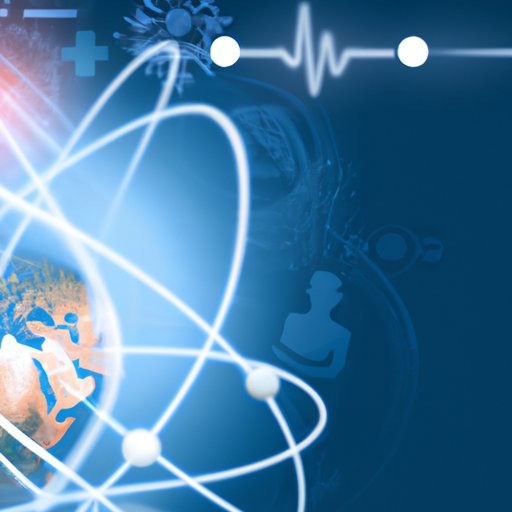Introduction
The word “science” refers to the systematic study of the structure and behavior of the physical and natural world through observation and experiment. It has been an integral part of human progress since ancient times, allowing us to understand and manipulate the world around us in ways that were previously unimaginable. Today, science continues to drive social, economic, and technological progress, making it essential to the functioning of modern society.
Improved Quality of Life
One of the most obvious benefits of science is that it has improved our quality of life. From advances in medical treatments to the development of new technologies, science has allowed us to live healthier, longer, and more productive lives. According to the World Health Organization, scientific advancements have resulted in a 25-year increase in average life expectancy since 1950, with the global average now standing at 72 years.
Scientific research has also enabled us to create products and services that make our lives easier and more enjoyable. For example, the invention of the internet has revolutionized the way we communicate, work, and access information. Similarly, the development of renewable energy sources such as wind and solar power has made it possible to reduce our dependence on fossil fuels and their associated environmental impacts.
New Technologies
The development of new technologies is one of the most important outcomes of scientific research. By understanding the underlying principles of the universe, scientists are able to use this knowledge to create products and services that can improve our lives. From the invention of the steam engine to the development of artificial intelligence, science has enabled us to create technologies that have revolutionized the way we live.
For example, the emergence of 5G networks is enabling faster and more reliable connections, while autonomous vehicles and robotics are transforming the transportation industry. Similarly, advances in biotechnology are leading to new treatments for diseases, while 3D printing is revolutionizing manufacturing.
Solutions to Global Problems
Science has also played a crucial role in providing solutions to some of the world’s most pressing challenges. From climate change to poverty, science has helped to identify and address these issues in ways that were previously unimaginable. For example, the development of renewable energy sources such as wind and solar power has enabled us to reduce our reliance on fossil fuels and their associated environmental impacts.
Similarly, scientific research has led to breakthroughs in agriculture, resulting in higher crop yields and increased food security. In addition, advances in medical science have led to improved treatments for infectious diseases, helping to reduce mortality rates around the world.
Breakthroughs in Medicine and Healthcare
Scientific discoveries have also led to breakthroughs in medicine and healthcare. From the development of vaccines to the identification of new drugs, science has enabled us to treat and prevent a wide range of diseases. As Dr. Anthony Fauci, director of the National Institute of Allergy and Infectious Diseases, has said: “We’re living in a golden age of science and medicine. We have the ability to diagnose, treat and even cure diseases that only a few decades ago were considered untreatable.”
In particular, advances in genomic sequencing have enabled us to better understand the genetic basis of diseases, leading to more effective treatments. Similarly, the development of robotic surgery has allowed surgeons to perform complex operations with greater precision and accuracy.

Understanding the Environment and Nature
Scientific understanding has also helped us to better understand the environment and nature. Through scientific research, we have gained insight into the complexity of ecosystems and their interactions with humans. This has enabled us to develop strategies for preserving biodiversity and managing resources sustainably.
For example, the study of climate change has provided us with a better understanding of how human activities are impacting our planet and what steps we need to take to mitigate its effects. Similarly, research into animal behavior has helped us to better understand the behavior of species and how to protect them from extinction.
Exploring Space
Science has also enabled us to explore space and make astronomical discoveries. From the first satellite launch to the landing of a spacecraft on Mars, science has allowed us to push the boundaries of exploration and uncover the mysteries of the universe. According to the European Space Agency, “Space exploration has always pushed the limits of human imagination, inspiring us to look beyond our own planet and explore the wonders of the universe.”
In recent years, the development of powerful telescopes and probes has enabled us to make groundbreaking discoveries about exoplanets, black holes, and other celestial bodies. In addition, the use of satellites has enabled us to gain a better understanding of Earth’s climate and the impacts of human activity.
Economic Benefits
Finally, science has had a profound economic impact on society. Scientific research and innovation have enabled us to develop products and services that have created jobs and generated wealth. From the development of new medicines to the creation of new technologies, science has enabled us to generate economic growth and create new opportunities.
For example, the emergence of the information technology industry has created millions of jobs around the world and generated billions of dollars in economic activity. Similarly, advances in biotechnology have enabled us to develop new medicines and treatments, leading to significant economic benefits.
Conclusion
In conclusion, science has had a profound impact on our lives and society. From improved quality of life to economic benefits, science has enabled us to make progress in ways that were previously unimaginable. As we continue to explore the possibilities of science, it is essential that we take an interest in its development and strive to use it for the benefit of all.
(Note: Is this article not meeting your expectations? Do you have knowledge or insights to share? Unlock new opportunities and expand your reach by joining our authors team. Click Registration to join us and share your expertise with our readers.)
